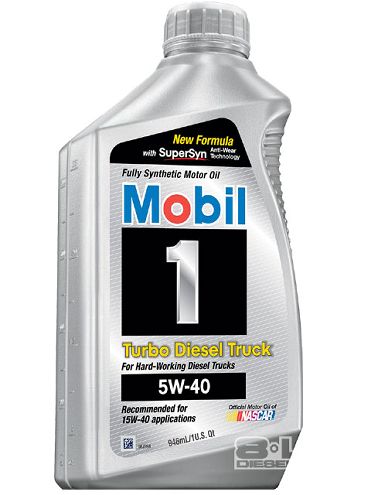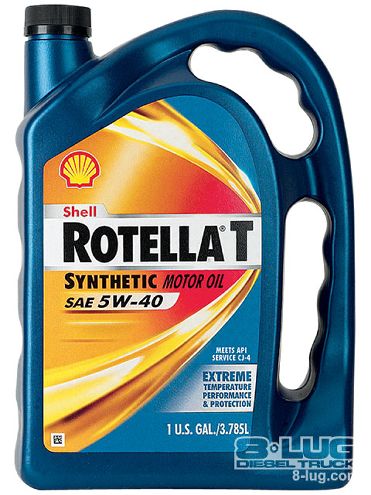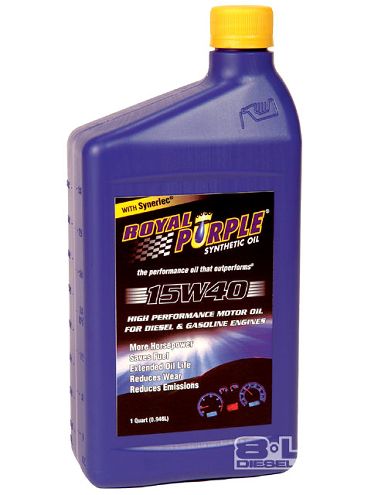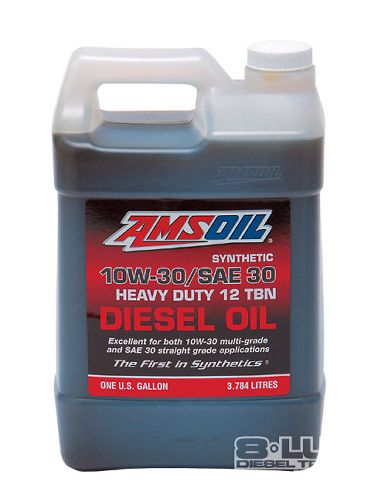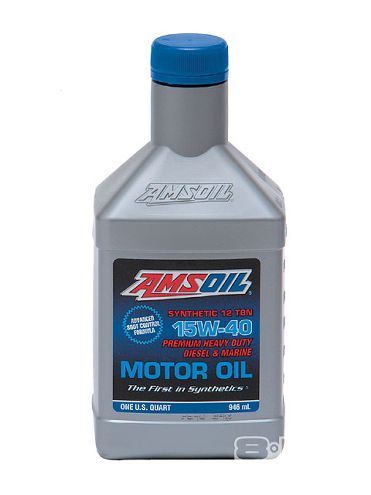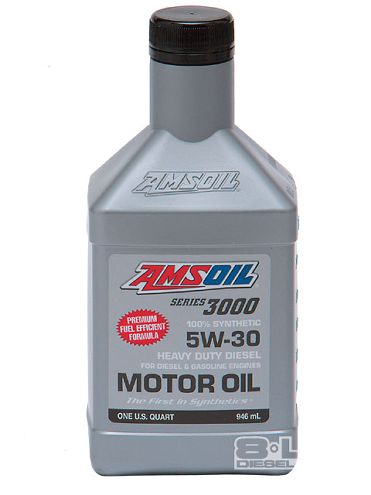We get a lot of mail around the office, and one of the leading topics is in regard to engine and transmission fluids. Specifically, readers want to know more about synthetic-made oils versus petroleum-based products. Since we don't have the resources or the time required to generate qualified responses to those readers, we did the next best thing and went directly to the source for our answers.

| 10 Myths About Synthetic Oil amsoil Diesel Oil
One person who was glad to shed some light on the subject was Ed Newman of Amsoil. He let us peer into his world so that we could better understand the truth behind the myth. "Looking back, it's easy to laugh at some of the things people so firmly believed," he said. "These people were not stupid. They were simply misinformed. In many instances they had simply drawn conclusions before all the facts were in."
As Ed pointed out, in our own time, synthetic motor oils in particular have been the object of numerous misconceptions held by the general public. Many people-including some mechanics that ought to know better-have been misled by persistent myths that need to be addressed.
Myth #1: You will damage your seals by using synthetic oils.
False: It would be foolhardy for lubricant manufacturers to build a product that is incompatible with seals. The composition of seals presents problems that both petroleum oils and synthetics must overcome. Made from elastomers, seals are inherently difficult to standardize.
Ultimately, it is the additive mix in oil that counts. Additives to control seal swell, shrinkage, and hardening are required, whether it be a synthetic or petroleum product that is being produced.
Myth #2: Synthetics are too thin to stay in the engine.
False: In order for a lubricant to be classified in any SAE grade (10W-30, 10W-40, etc.), it has to meet certain guidelines with regard to viscosity (thickness). For example, it makes no difference whether it's 10W-40 petroleum or 10W-40 synthetic. At -25 degrees centigrade (-13F) and 100 degrees centigrade (212 degrees F), the oil has to maintain a standardized viscosity or it can't be rated a 10W-40.
Myth #3: Synthetics cause you to use more motor oil.
False: Synthetic motor oils are intended for use in mechanically sound engines, that is, engines that don't leak. In such engines, oil consumption will actually be reduced. First, because of the lower volatility of synlubes. Second, because of the better sealing characteristics between piston rings and cylinder walls. And finally, because of the superior oxidation stability (i.e. resistance of synthetics against reacting with oxygen at high temperatures).
Myth #4: Synthetic lubricants are not compatible with petroleum.
False: The synthesized hydrocarbons, polyalphaolefins, diesters, and other materials that form the base stocks of high-quality brand-name synthetics are fully compatible with petroleum oils. Compatibility is something to keep in mind, whether using petroleum oils or synthetics. It is usually best to use the same oil for topping off that you have been running in the engine. It is preferable to not mix your oils, even if it is Valvoline or Quaker State you are using. The reason is this: the functions of additives blended for specific characteristics can be offset when oils with different additive packages are put together. For optimal performance, it is better to use the same oil throughout.
Myth #5: Synthetic lubricants are not readily available.
False: This may have been the case two decades ago when Amsoil and Mobil 1 were the only real choices, but today nearly every major oil company has added a synthetic product to its lines.
Myth #6: Synthetic lubricants produce sludge.
False: Actually, synthetic motor oils are more sludge-resistant than their petroleum counterparts, resisting the effects of high temperature and oxidation. In the presence of high temperatures, two things happen. First, an oil's lighter ingredients boil off, making the oil thicker. Second, conventional petroleum base stocks are vulnerable to oxidation, thus forming sludge, gum, and varnish. One result is a loss of fluidity at low temperatures, slowing the timely flow of oil to the engine for vital component protection. Further negative effects of thickened oil include the restriction of oil flow into critical areas, greater wear, and loss of fuel economy. Because of their higher flash points and ability to withstand evaporation loss and oxidation, synthetics are much more resistant to sludge development. Two other causes of sludge-ingested dirt and water dilution-can be a problem in any kind of oil, whether petroleum or synthetic. These are problems with the air filtration system and the cooling system respectively, not the oil.

| 10 Myths About Synthetic Oil red Line Synthetic Oil
Myth #7: Synthetics can't be used with catalytic converters or oxygen sensors.
False: There is little difference between synthetic and petroleum oils in regard to these components. Both synthetic and petroleum motor oils are similar compounds and neither is damaging to catalytic converters or oxygen sensors.
Myth #8: Synthetics void warranties.
False: No major manufacturer of automobiles specifically bans the use of synthetic lubricants. Actually, increasing numbers of high-performance cars are arriving on showroom floors with synthetic motor oils as factory fill. New vehicle warranties are based upon the use of oils meeting specific API service classifications (for example, SG/CE). Synthetic lubricants that meet current API service requirements are perfectly suited for use in any vehicle without affecting the validity of the new car warranty.
Myth #9: Synthetics last forever.
False: Although some experts feel synthetic base stocks can be used forever, it is well known that eventually the additives will falter and cause the oil to require changing. Moisture, fuel dilution, and acids (the by-products of combustion) tend to use up additives in oil, allowing degradation to occur. However, by topping off, additives can be replenished. Through good filtration and periodic oil analysis, synthetic engine oils protect an engine for lengths of time far beyond the capability of non-synthetics.
Myth #10: Synthetics are very expensive.
False: Tests and experience have proven synthetics can greatly extend drain intervals, provide better fuel economy, reduce engine wear, and enable vehicles to operate with greater reliability. All these elements combine to make synthetic engine oils more economical than conventional non-synthetics. In Europe, synthetics have enjoyed increasing acceptance, as car buyers look first to performance and long-term value rather than initial price. As more sophisticated technology places greater demands on today's motor oils, we will no doubt see an increasing re-evaluation of oil buying habits in this country as well.
